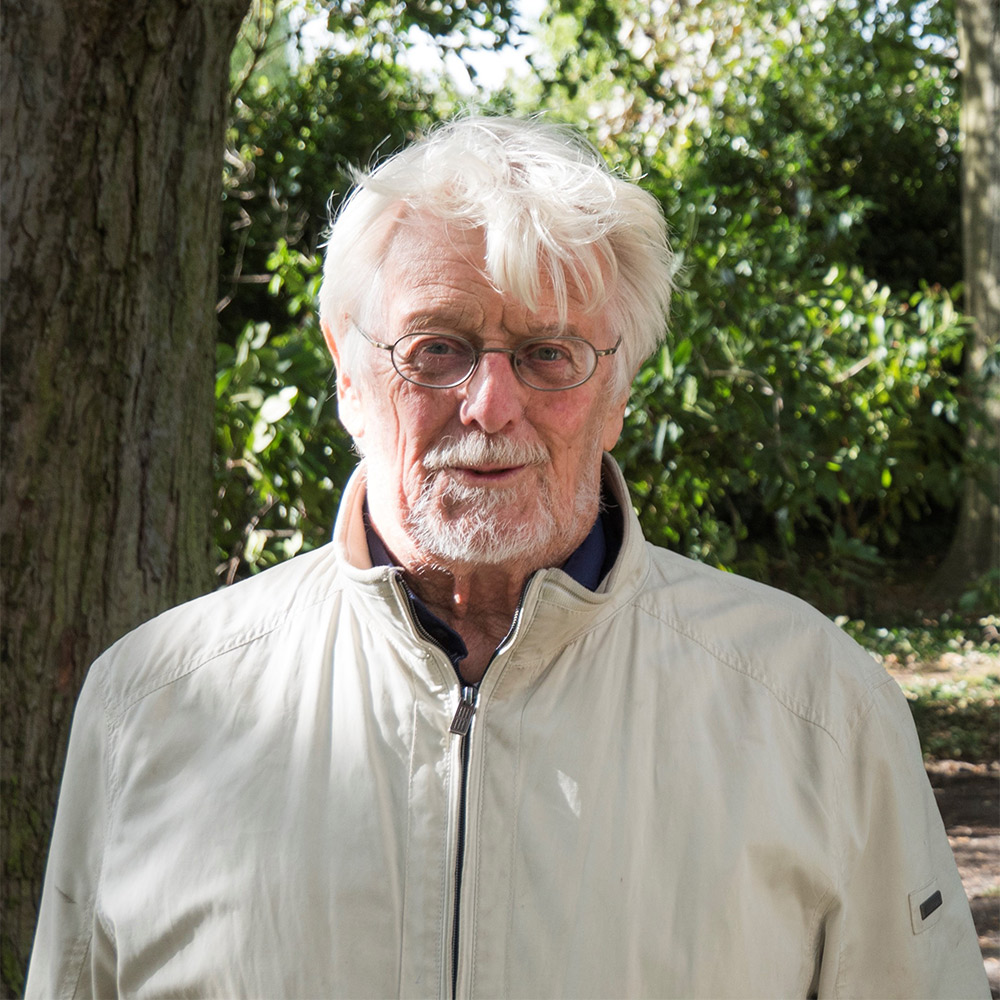
Peter Greve may be seen as a prime example for music as a late vocation – though it’s hard to believe when one hears how deeply his creations root in the bon ton of contemporary musical academia. THE PALACE OF THE DREAMKING offers a cross-section of Greve’s eclectic and experimental body of compositional work.
After his studies, Peter worked as a scientific researcher in pharmaceuticals and for the Dutch Ministry of Public Health, but remained active in music on a part-time basis. He now works as a full time composer, arranger, conductor, and pianist.
Greve lives in Graveland, a village about 20 km southeast of Amsterdam.
Who was your first favorite artist(s) growing up?
Going back as far as my memory goes (i.e., in this case: when I was approx. 6 years old), my first favorite composer was Mozart, and at that age “favorite” means nothing less than “the absolute top.” I specifically remember how I was enchanted by the Jupiter Symphony and by the Variations from the Pianosonata in A, which unfortunately were far too difficult for me, who then could not even play a Viennese Sonatina. Today, I have more “favorite composers,” but Mozart remains in their upper ranges, and I wouldn’t know one work of his which does not enchant me when I hear it.
When did you realize that you wanted to be an artist?
It must have been at the same age that I decided to become a composer, just as famous and cheered as Mozart. Of course I didn’t have a clue about what that really meant in terms of learning and practising, aside from the inevitable social struggling and being short of money, but one learns by doing, and at some moment one dares to say, “from now on, I am a composer.” In the mean time one also knows that geniuses such as Mozart and Bach are extremely rare, but that at a more modest level good music can be written as well.
If you could instantly have expertise performing one instrument, what instrument would that be?
If this most unlikely occasion would present itself, I would vote for the Baroque trumpet (natural or “a tirarsi”) and play those wonderfully radiant parts Bach wrote for it. As a student, I played the classic B-flat trumpet: I never came very far, but I came to love the brass sound and learned a lot about brass technique and how to write for brass. Love and learning came together in the Partita for 11 Brass Instruments (item #2 of the present album), in a brilliant performance by the Zagreb brass players.
What was your favorite moment in creating THE PALACE OF THE DREAMKING?
That must have been the moment when we finalized the recording session in Zagreb in March of this year, knowing that we had all the material required to successfully finalize the album. And so, now it is there!
What does this album mean to you personally?
It gives a varied anthology of instrumental works of mine, brought together in an attractive professional framework: something like a jewel in a crown. While the music itself is nothing but invisible, vibrating air leaving no trace when the sound has faded away, such an album is a thing you can hold in your hand, show to other people, have on display in your house and make your music come to life again: things worth having lived and worked for.
What is your guilty pleasure?
No doubt that is: Dutch junk food: fatty, greasy stuff (“kroketten”) on a basis of pork meat, starch and spices, fried in oil, served on and eaten with plastic throw-away material, preferably in the open air. Alternatives: sausages in puff pastry (saucijzenbroodjes), large pancakes with bacon (spekpannekoeken), small pancakes (poffertjes) with butter and ice-cream topped with whipped cream (1:1 by volume), – I will spare you the rest.

Peter Greve (1931-2021) was born in The Hague (Netherlands). He received musical training in The Hague from Jean Antonietti and Léon Orthel (piano), Theo Laanen (trumpet), Dr. Marcus van Crevel (music theory), and later from Willem Frederik Bon (Amsterdam), Myers Foggin (United Kingdom) and Terence Lovett (United Kingdom), in orchestral conducting. During this time, he also studied at the State University of Leiden (Netherlands), where he obtained M.Sc. (1957) and Ph.D. (1959) degrees in chemistry.
